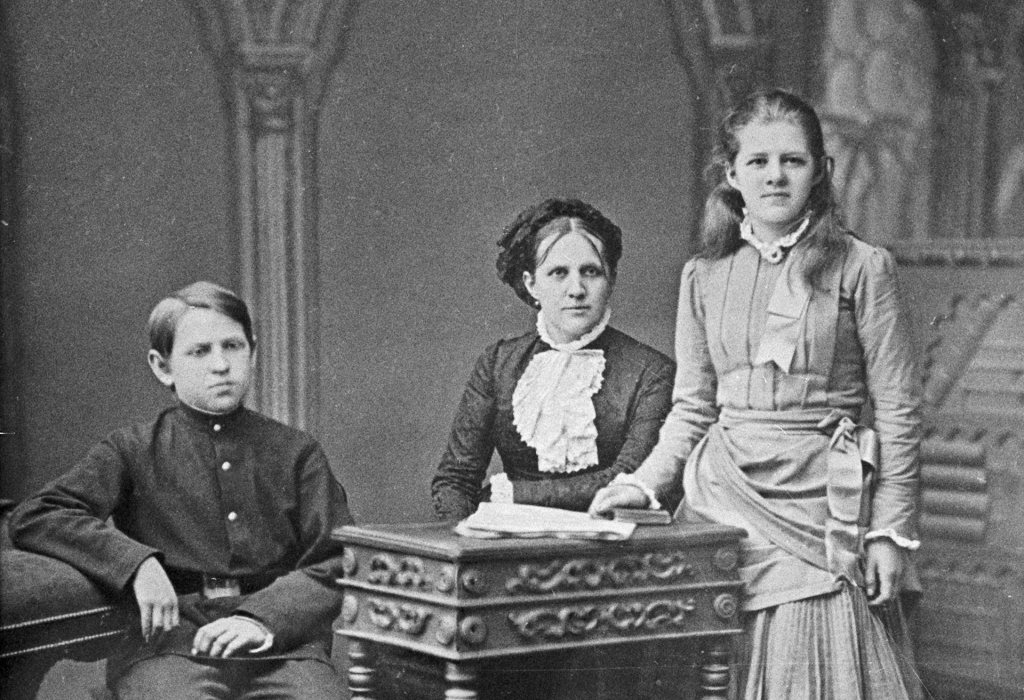
13.01.2023
Fyodor Mikhailovich and Anna Grigoryevna Dostoyevsky went abroad soon after their wedding, in April 1867. Anna was twenty, and she left Russia for the first time.
1. About the cost of goods and services
“<…> Here we gave letters. (We were charged 12 zilb for 3 letters. — 36 kopecks, — this is very little) <…> We went to buy cigarettes, they charged us 4 zilb. (12 kopecks.) for those that cost 25 in St. Petersburg, exactly twice. The further away, the cheaper cigarettes become.”
May 5 (April 23)
In her diary, Anna Grigoryevna writes down all the expenses. First, he mentally transfers them to Russian money and estimates the high cost, then compares prices for the same goods in different cities. In addition, it describes in detail the type of coins and the economic habits of the population. At first, the Dostoevskys live in Berlin and Dresden, where thalers, guilders and silbergros are in use
. They dine on average for 2 thalers for two, drink coffee, buy fruits, flowers, souvenirs, clothes. Anna Grigoryevna willingly spends money on all this, because food and things are cheaper here than in St. Petersburg.
The main complaint against the local population is the constant attempts to deceive travelers, taking advantage of the fact that they do not understand the local currency. In Baden-Baden, they are trying to exchange money with old Prussian coins, which they have never seen and whose prices they did not know. However, the Dostoevskys, who have already fallen into the hands of scammers a couple of times, refuse.
2. About the roulette game
“Today we had 20 gold coins in the morning — this is too small a resource, well, what to do, maybe we’ll get up somehow. Fedya went, and I stayed at home, but he soon came, saying that he had lost the taken 5, and asked for another 5; I gave, and there were 10 left; he went and lost these 5; taking another 5, he returned and said that he had lost these too, and asked me for one gold piece. We have 4 left. I gave 1 gold, Fedya went, but came back in ¼ hours, and where was it to keep with one gold. We sat down to dinner very sad. After lunch, I went to the post office, and Fedya went to play, taking 3 more with him. There’s only one left. I walked down the alley for a long time, waiting for him, but he still didn’t come. Finally he came and said that he had lost these, and asked me to let him pawn things right away.”
July 18 (July 6)
After moving to Baden-Baden, where Dostoevsky constantly plays roulette, the text of the diary changes: the author records only the amount of money left. Most often, this is counting the last coins that you have to give to your husband, although you need to fix your clothes and cook dinner. The Dostoevskys no longer go to restaurants, but eat at home, constantly delaying rent. Anna Grigoryevna pays with dresses, capes, fur coat, wedding rings.

3. About the reasons for losses
“<…> … he said: “No, because I had 1300 francs, it was the third day in my hands, I ordered myself to be woken up at 9 o’clock to take the morning train, the scoundrel lackey did not think to wake me up, and I slept until half past 12. Then I went to the train station and lost everything in three bets. Then he pawned his ring to pay at the hotel. Then I also lost on the rest””.
October 7 (September 25)
When informing his wife about his losses, Dostoevsky always tried to explain their cause. From his point of view, this was because he was constantly being pushed at the gaming table. Unable to concentrate, he made bad bets. He was also hindered by people talking behind his back, the noise in the hall and even Anna Grigoryevna herself, who came with him to the gambling establishment. Later, Fyodor Mikhailovich comes up with other explanations — both for losses and decisions to go to play. For example, he was not woken up, he had free time, and so he went to try his luck. At first, Anna Grigoryevna, who justified him, begins to reproach and suspect her husband.
4. About quarrels
“<…> … Fedya noticed to me that I was dressed in winter and that I had bad gloves. I was very offended and replied that if he thought I was badly dressed, then it was better for us not to go together. He turned and walked back, and I went to the palace.”
April 30 (April 18)
5. About ugly and infuriating people
“<…> Yesterday we walked around the city and met an awful lot of different cripples: now hunchbacked, then with twisted legs, then bow—legged; in general, Dresden is a city of all kinds of cripples. This is the ugliest population that only I see, all the old men and women are just disgusting, I don’t want to look, they are so ugly.”
May 13 (May 1)
Throughout 1867, traveling to different countries, the Dostoevskys constantly scold the locals, presenting them with a variety of claims. The main problem of the Germans is that they are stupid and incomprehensible; to Anna Grigoryevna, local customs seem wild: she is surprised and almost outraged that people who provide various kinds of services do not distract from their outside affairs when a client comes to them. For example, the midwife, to whom Anna Grigoryevna comes to consult about her pregnancy, accepts her at breakfast.
The Dostoevskys and Russians are infuriating. Anna Grigoryevna looks at the outfits of female travelers, considering them tasteless, and Fyodor Mikhailovich scandalizes at the Russian consulate — because he was asked to show his passport.
6. About Russian writers who also infuriate
“Fedya, as usual, spoke to him [Turgenev] somewhat sharply, for example, advised him to buy himself a telescope in Paris, and since he lives far from Russia, then aim the telescope and see what’s going on there, otherwise he won’t understand anything about it, Turgenev announced that he, Turgenev, a realist, but Fedya said it only seemed that way to him. When Fedya said that he only noticed stupidity in the Germans, and besides, it was very often a deception, Turgenev was terribly offended by this and announced that Fedya had insulted him with this, because he had become a German, that he was not a Russian at all, but a German.”
July 10 (June 28)
Russian Russian writers meet abroad, the Dostoevskys are also furious: they are annoyed by their ignorance of Russian life. So, Turgenev considers himself a German, and Ogarev has not read Crime and Punishment. Goncharov is the best of all, because he does not discuss Russian and European reality with the Dostoevskys.




